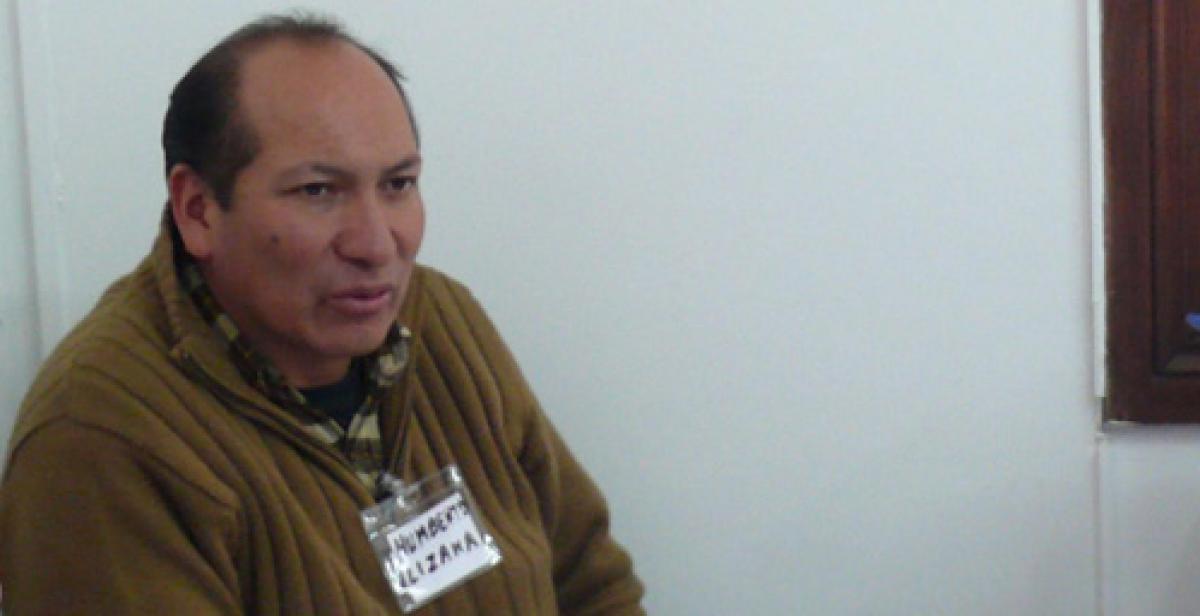The impact of climate change on global water resources was discussed with Humberto Lizana, an alpaca farmer and civil society leader living and working in the Huancavelica region of the Peruvian Andes, this week in Progressio’s first-ever liveblog.
Setting the scene, Humberto said, “Climate change is bringing us freezing days and a high incidence of sun. And these big temperature changes do not allow agriculture on a small scale to flourish.”
But this is just one of many problems local farming communities have. “The people who suffer most are those with a precarious personal economy, like the alpaca farmers or the cereal or potato farmers,” he says.
Humberto explained through personal experience the impact climate change has on life in Peru. There have been a large number of Alpaca deaths, a deterioration of crops and subsequently, a growing level of poverty due to a 20-year period of drought.
He also added that the change in weather is drastically different from previous decades. There is an increase in temperature in the Peruvian Andes and, as a result, the snow in Huaytapellana is disappearing and other peaks run the risk as well.
Water in the highlands of Peru is a big issue. Petra Kjell, live from the UN climate talks in Cancun highlighted the issue of water. “Water is a key issue in terms of climate change,” she said.
Humberto explained that for everyday people in Peru, climate change is an issue that significantly impacts their lives. Strong heat and lack of rain contrasting freeze and avalanches has resulted in dead alpacas and livestock and a loss of harvests.
Hope for Cancun?
The neglected issue of water finally got recognised in the negotiations at the UN’s Cancun climate change summit in Mexico this week.
The news from Cancun was received well by Petra and Humberto. “We are hoping that this will open up a new discussion, recognising the importance of water, which could also bring in experiences and local solutions from communities, such as those in Huancavelica, into the negotiations,” said Petra.
Despite this, Humberto explained that for the Peruvian people who have endured these difficulties due to climate change, there is not much confidence among them in regard to Cancun.
“They are seen as making non realistic decisions that don't really have any direct impact on the most vulnerable countries, said Humberto. “People don't think there will be any real improvement coming from the industrialised countries.”
But Humberto has faith that world leaders will use this international discussion as a starting point for making more ethical and economical decisions.
“I think that is it important to keep insisting that the ‘big’ nations invest in more resources for developing countries,” he says. “But it is also ethical to insist that there are programmes of alternative development like the sowing and reaping of water, or that they look more at how to preserve and conserve our biodiversity as this is the only guarantee in terms of avoiding climate change.”
“I have hope that some decisions can be taken at Cancun. I hope that Cancun signals a new phase in the existence of humankind, and that we start to control this incessant strong climate change in the world. The world is waiting for this generation.”
--
To read Humberto’s ‘liveblog’ conversation with Progressio supporters go to: http://progressio.org.uk/liveblog



